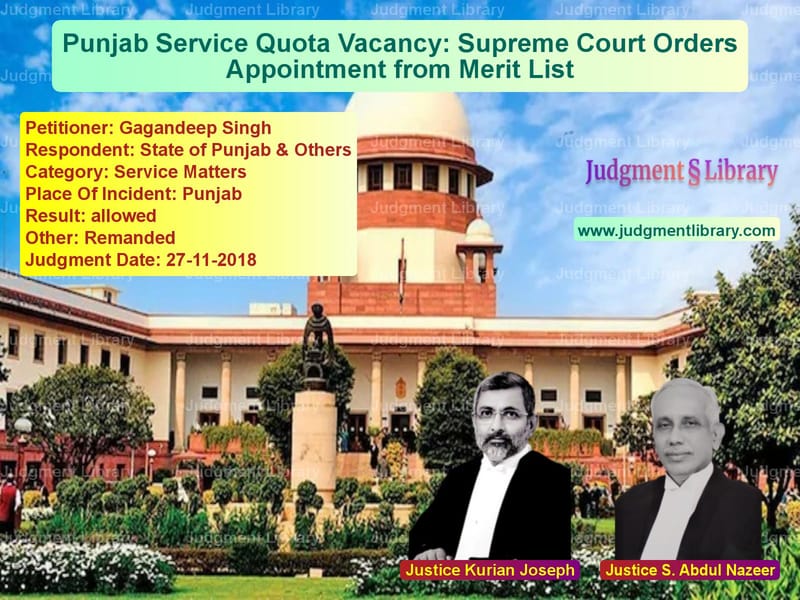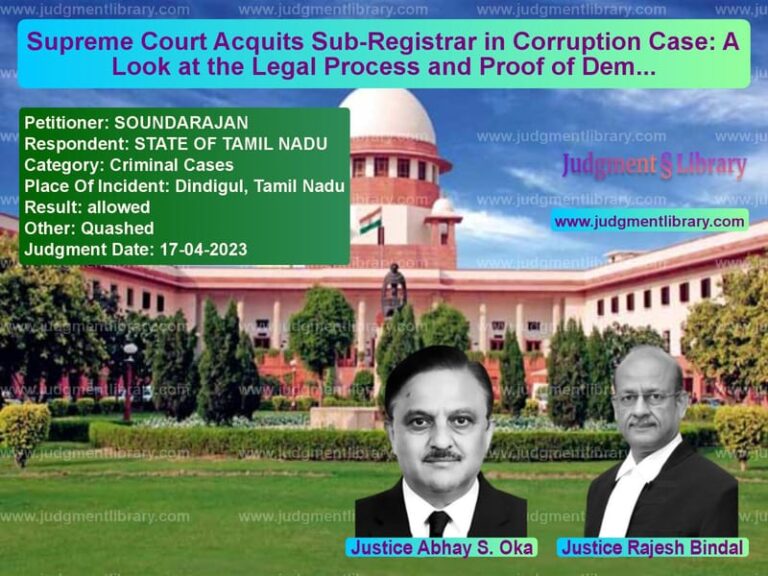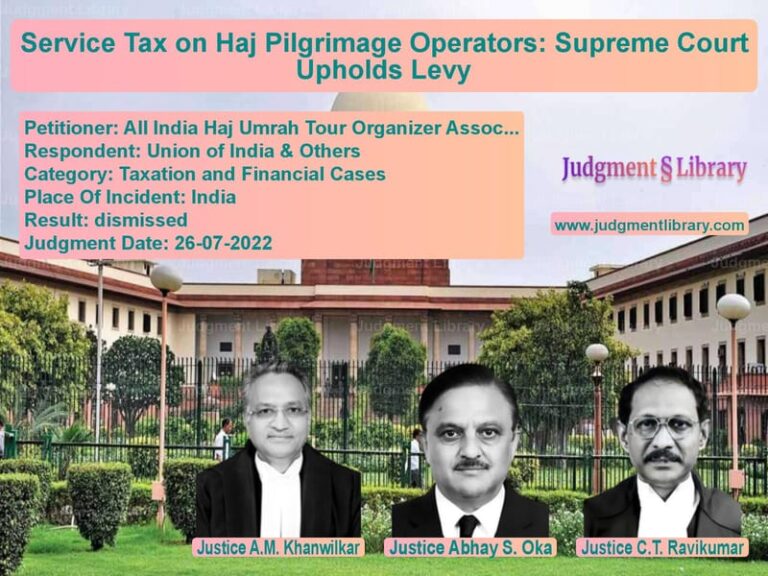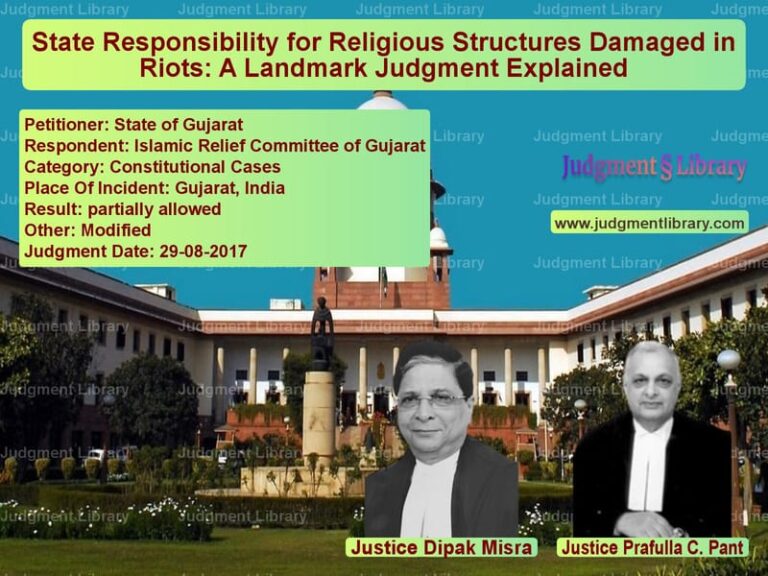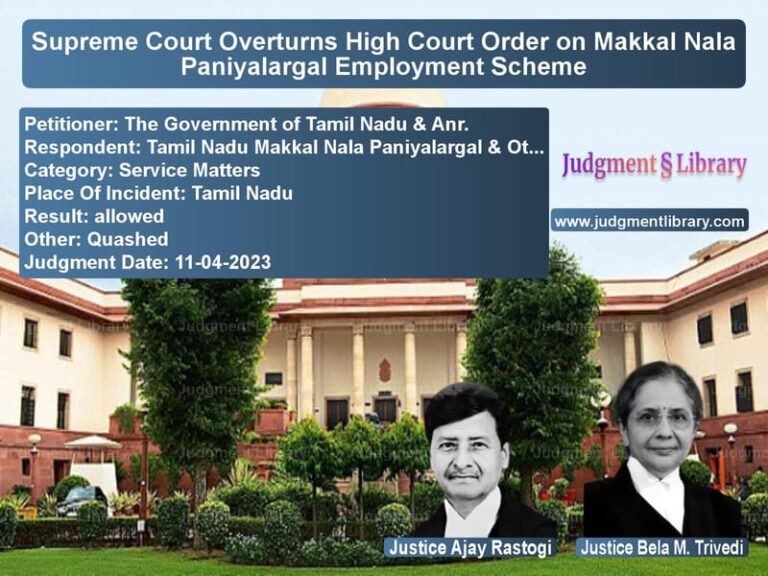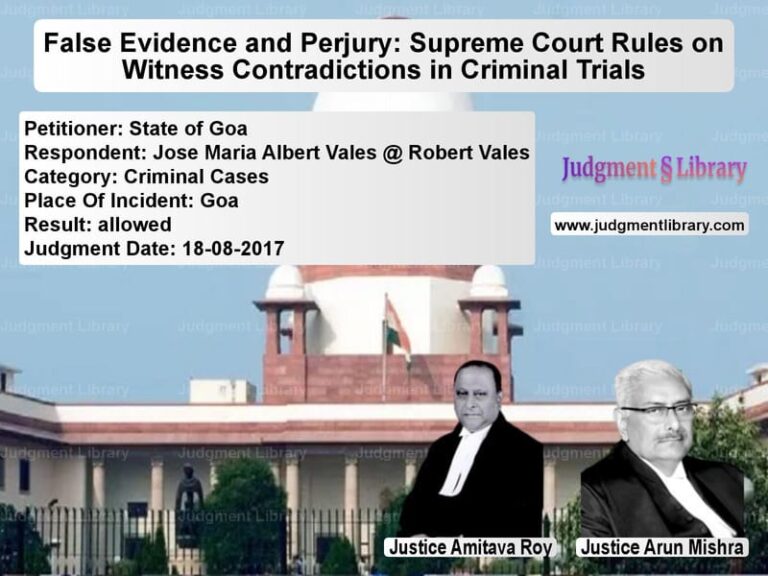Punjab Service Quota Vacancy: Supreme Court Orders Appointment from Merit List
The Supreme Court of India recently ruled in the case of Gagandeep Singh vs. The State of Punjab & Others, addressing a crucial service matter concerning the rights of reserved category candidates in public service recruitment. The case revolved around the selection process for the post of District Programme Officer in Punjab and the subsequent handling of a reserved category vacancy after an appointed candidate resigned.
Background of the Case
In 2010, the Punjab Public Service Commission advertised vacancies for the position of District Programme Officer. The selection process included a written examination conducted in 2012, after which a merit list was prepared. The appellant, Gagandeep Singh, belonging to the Balmiki/Majbhi Sikh reserved category, was ranked third on this list.
One of the selected candidates, Gurpreet Singh, was appointed under the reserved category but later resigned from the post in 2014. The appellant contended that the vacancy should have been filled by the next available candidate from the same category in the merit list, as per government instructions. However, the State of Punjab rejected this claim, arguing that the reserved quota had been consumed once the appointment was made.
Legal Issues in the Case
- Whether a reserved category vacancy remains unfilled when the originally appointed candidate resigns before the expiry of the selection list.
- The legal status of merit lists in government recruitment and whether vacancies arising from resignation should be filled from the same list.
- The interpretation of Punjab government instructions on reservation and post-resignation vacancies.
- Whether the rejection of the appellant’s claim violated the principles of fairness and equality in public service recruitment.
Petitioner’s Arguments
The appellant, Gagandeep Singh, asserted the following points before the Supreme Court:
- The reserved vacancy should be considered unfilled as per the government’s guidelines issued on 08.04.1980 and later clarified on 10.01.1996.
- The instructions clearly state that a reserved category vacancy remains available if the appointed candidate resigns or vacates the post.
- The appellant was next in line for appointment since the candidate ranked second (Manjinder Singh) had not pursued the position.
- The rejection by the State violated the legal principle that government authorities must follow existing rules and not arbitrarily deny candidates their rightful opportunities.
Respondent’s Arguments
The State of Punjab defended its position, arguing:
- The merit list had expired after the initial appointments, making it impossible to appoint the appellant.
- Once an appointment is made, the reservation point is consumed and does not remain available.
- New recruitment was initiated for the same position, and the appellant should have applied in the fresh selection process.
- The court should not intervene in administrative decisions unless a clear violation of law is established.
Supreme Court’s Observations
The Supreme Court, in its judgment, disagreed with the State’s contentions and upheld the validity of the government instructions cited by the appellant. The Court noted:
- The 1996 guidelines explicitly state that when a reserved category candidate resigns, the vacancy is not consumed but remains available for the same category.
- Appointments must be made in accordance with the selection list, provided the vacancy arises before the expiry of the list.
- In this case, the vacancy arose in 2014, well before the new selection process in 2016.
- The reserved category post for Balmiki/Majbhi Sikh candidates had not been re-advertised in the subsequent selection process, making it imperative to fill it from the original merit list.
Final Judgment
- The Supreme Court allowed the appeal and directed the State of Punjab to appoint the next eligible candidate from the 2012 merit list.
- If Manjinder Singh (ranked second) did not claim the position, the appointment should be given to Gagandeep Singh.
- The appointment must be completed within two months from the date of judgment.
- The Court clarified that the appointed candidate’s seniority would be determined from the date of actual appointment, ensuring fairness in service seniority considerations.
Significance of the Judgment
- Reinforcement of Reservation Policies: The ruling affirms that reserved category vacancies remain available until filled, even if the originally appointed candidate resigns.
- Protection of Merit-Based Selection: It prevents authorities from arbitrarily declaring merit lists invalid, ensuring fairness for candidates in waiting.
- Precedent for Future Recruitment: Government agencies must adhere to existing guidelines when handling post-resignation vacancies.
- Clarity on Service Rights: The decision safeguards the rights of reserved category candidates and prevents manipulation of quota-based appointments.
Conclusion
The Supreme Court’s judgment in Gagandeep Singh vs. The State of Punjab & Others is a landmark ruling in service law, reinforcing the principle that public service appointments must be handled fairly and in accordance with established guidelines. By directing the State to appoint the next eligible candidate, the Court has upheld the rights of reserved category candidates and ensured that vacancies are not arbitrarily declared closed. The ruling sets an important precedent for handling similar cases in government recruitment across India.
Petitioner Name: Gagandeep Singh.Respondent Name: State of Punjab & Others.Judgment By: Justice Kurian Joseph, Justice S. Abdul Nazeer.Place Of Incident: Punjab.Judgment Date: 27-11-2018.
Don’t miss out on the full details! Download the complete judgment in PDF format below and gain valuable insights instantly!
Download Judgment: Gagandeep Singh vs State of Punjab & Ot Supreme Court of India Judgment Dated 27-11-2018.pdf
Direct Downlaod Judgment: Direct downlaod this Judgment
See all petitions in Employment Disputes
See all petitions in Public Sector Employees
See all petitions in Recruitment Policies
See all petitions in Judgment by Kurian Joseph
See all petitions in Judgment by S. Abdul Nazeer
See all petitions in allowed
See all petitions in Remanded
See all petitions in supreme court of India judgments November 2018
See all petitions in 2018 judgments
See all posts in Service Matters Category
See all allowed petitions in Service Matters Category
See all Dismissed petitions in Service Matters Category
See all partially allowed petitions in Service Matters Category

